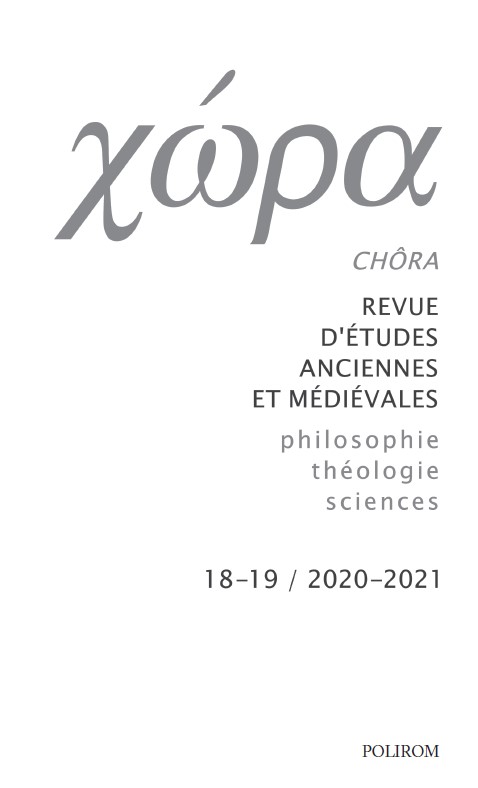NEITHER SUBSTANCE NOR ESSENCE : THE BASIC MEANING OF OUSIA IN PLATO’S USE
NEITHER SUBSTANCE NOR ESSENCE : THE BASIC MEANING OF OUSIA IN PLATO’S USE
Author(s): Francesco AronadioSubject(s): Metaphysics, Epistemology, Semantics, Ancient Philosphy, Existentialism, Ontology
Published by: EDITURA POLIROM S.A.
Keywords: Ousia; Plato; Basic; Semantics; Eponomy; Existence; Empirical things; pathos;
Summary/Abstract: The purpose of this paper is to highlight the basic meaning of ousia in Plato’s philosophical use of the term. “Basic” is not intended as “the strongest”, let alone “exclusive”, insofar as the semantics of ousia encompasses a variety of philosophical meanings. On the contrary, the basic meaning is proposed to be the elementary semantic component of ousia, which is present in the background of Plato’s quasi‑technical use of the term and marks the difference from its ordinary meaning. In view of this, a “genetic” aspect is firstly considered, that is, the connection with the Socratic question “What is X ?”. Thereafter, a brief mention to Plato’s conception of language and its relation to reality is made, focusing on the notion of eponymy. This because Plato’s coinage of the philosophical semantics of ousia gives this term the role of an eponym, in the sense that its prominent value is the reference to the Forms, but this does not exclude (on the contrary, includes) that it may refer to other types of entities. In the last two sections of the paper, a number of passages from Plato’s works are examined to show that the basic meaning of ousia ultimately is “determined existence”, inasmuch as it designates anything existing with its own peculiar feature(s). For ousiai can be empirical things as well as Forms, which implies that the meaning of Plato’s ousia should not be understood in the light of an (Aristotelian) substance/accident relation.
Journal: Chôra. Revue d'études anciennes et médiévales
- Issue Year: 2021
- Issue No: 18-19
- Page Range: 19-40
- Page Count: 22
- Language: English
- Content File-PDF

